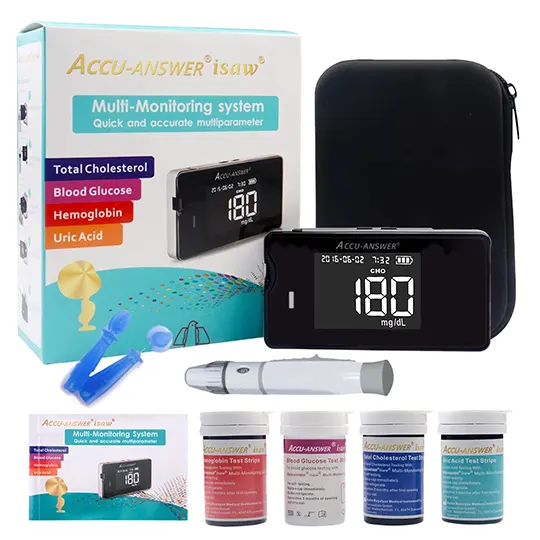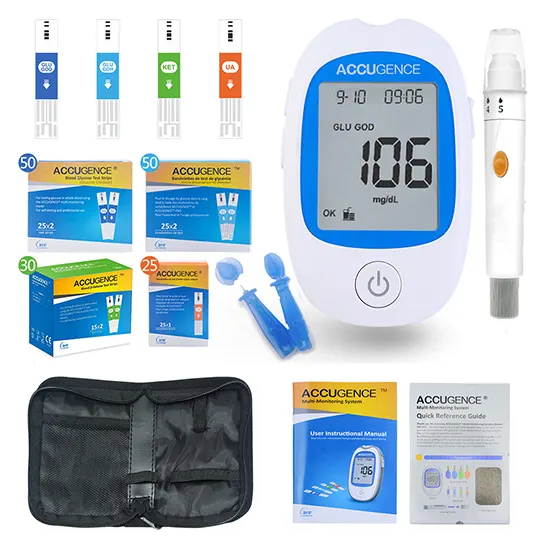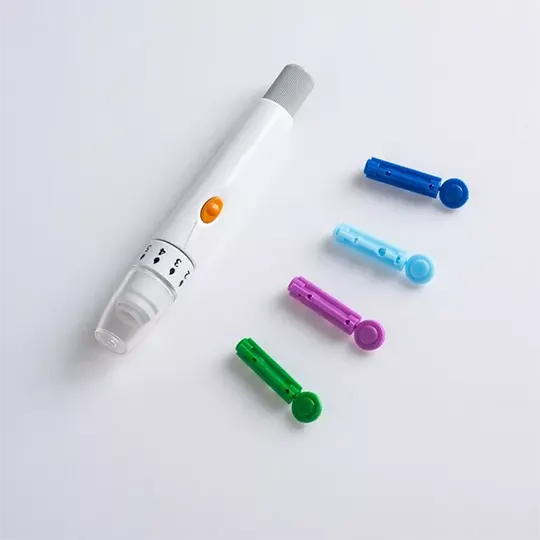Amerge
Amerge - General Information
Amerge is a triptan drug used for the treatment of migraine headaches. It is a selective 5-hydroxytryptamine1 receptor subtype agonist.
Pharmacology of Amerge
Amerge is a selective 5-hydroxytryptamine receptor subtype agonist indicated for the acute treatment of migraine attacks with or without aura in adults. Amerge is not intended for the prophylactic therapy of migraine or for use in the management of hemiplegic or basilar migraine. Amerge is an agonist for a vascular 5-hydroxytryptamine receptor subtype (probably a member of the 5-HT1D family) having only a weak affinity for 5-HT1A, 5-HT5A, and 5-HT7 receptors and no significant affinity or pharmacological activity at 5-HT2, 5-HT3 or 5-HT4 receptor subtypes or at alpha1-, alpha2-, or beta-adrenergic, dopamine1,; dopamine2; muscarinic, or benzodiazepine receptors. This action in humans correlates with the relief of migraine headache. In addition to causing vasoconstriction, experimental data from animal studies show that Amerge also activates 5-HT1 receptors on peripheral terminals of the trigeminal nerve innervating cranial blood vessels, which may also contribute to the antimigrainous effect of Amerge in humans.
Amerge for patients
Information for the Patient AMERGE™ (naratriptan hydrochloride) Tablets
Please read this leaflet carefully before you take AMERGE Tablets. This leaflet provides a summary of the information available about your medicine. Please do not throw away this leaflet until you have finished your medicine. You may need to read this leaflet again. This leaflet does not contain all the information on AMERGE Tablets. For further information or advice, ask your doctor or pharmacist.
Information About Your Medicine
The name of your medicine is AMERGE (naratriptan hydrochloride) Tablets. It can be obtained only by prescription from your doctor. The decision to use AMERGE Tablets is one that you and your doctor should make jointly, taking into account your individual preferences and medical circumstances. If you have risk factors for heart disease (such as high blood pressure, high cholesterol, obesity, diabetes, smoking, strong family history of heart disease, or you are postmenopausal or a male over 40), you should tell your doctor, who should evaluate you for heart disease in order to determine if AMERGE is appropriate for you. The majority of those who have taken AMERGE Tablets have not experienced any significant side effects.
Rarely, deaths and or serious heart problems have been reported with this class of medicines; in all but a few instances, however, these deaths and/ or serious heart problems occurred in people with heart disease and it was not clear whether these medications were a contributing factor.
1. The Purpose of Your Medicine:
AMERGE Tablets are intended to relieve your migraine, but not to prevent or reduce the number of attacks you experience. Use AMERGE Tablets only to treat an actual migraine attack.
2. Important Questions to Consider Before Taking AMERGE Tablets:
If the answer to any of the following questions is YES or if you do not know the answer, then please discuss it with your doctor before you use AMERGE Tablets.
° Are you pregnant? Do you think you might be pregnant? Are you trying to become pregnant? Are you not using adequate contraception? Are you breast-feeding?
° Do you have any chest pain, heart disease, shortness of breath, or irregular heartbeats? Have you had a heart attack?
° Do you have risk factors for heart disease (such as high blood pressure, high cholesterol, obesity, diabetes, smoking, strong family history of heart disease, or you are postmenopausal or a male over 40)?
° Have you had a stroke, transient ischemic attacks or "TIAs", or Raynaud syndrome?
° Do you have high blood pressure?
° Have you ever had to stop taking this or any other medication because of an allergy or other problems?
° Are you taking any other migraine medications, including other 5-HT1 agonists such as IMITREX® (sumatriptan), or medications containing ergotamine, dihydroergotamine, or methysergide?
° Are you taking any medication for depression such as selective serotonin reuptake inhibitors [SSRIs])?
° Have you h.d. or do you have, any disease of the kidney or liver?
° Is this headache different from your usual migraine attacks? Remember, if you answered YES to any of the above questions, then discuss it with your doctor.
3. The Use of AMERGE Tablets During Pregnancy:
Do not use AMERGE Tablets if you are pregnant, think you might be pregnant, are trying to become pregnant, or are not using adequate contraception, unless you have discussed this with your doctor.
4. How to Use AMERGE Tablets:
For adults, the usual dose is a single tablet taken whole with fluids. It may be given at any time after the headache starts. For an individual attack, if you have no response to the first tablet, do not take a second tablet without first talking to your doctor. If you need more relief due to a partial response or return of your headache after the first tablet, a second tablet may be taken but not sooner than 4 hours following the first tablet. Do not take more than a total of two AMERGE Tablets in any 24-hour period. If you have kidney or liver disease, take as directed by your doctor.
5. Side Effects to Watch for:
Some patients experience pain or tightness in the chest or throat when using AMERGE Tablets. If this happens to you, then discuss it with your doctor before using any more AMERGE Tablets. If the chest pain, tightness, or pressure is severe or does not go away, call your doctor immediately.
° If you have sudden and or severe abdominal pain following AMERGE Tablets, call your doctor immediately.
° Shortness of breath; wheeziness; heart throbbing, swelling of eyelids, face, or lips; or a skin rash, skin lumps, or hives happens rarely. If it happens to you, then tell your doctor immediately. Do not take any more AMERGE Tablets unless your doctor tells you to do so.
° Some people may have feelings of tingling, heat, flushing (redness of face lasting a short time), heaviness or pressure after treatment with AMERGE Tablets. A few people may feel drowsy, dizzy, tired, or sick. Tell your doctor of these symptoms at your next visit.
° If you feel unwell in any other way or have any symptoms that you do not understand, you should contact your doctor immediately.
6. What to Do if an Overdose is Taken:
If you have taken more medication than you have been told, contact either your doctor, hospital emergency department, or nearest poison control center immediately.
7. Storing Your Medicine:
Keep your medicine in a safe place where children cannot reach it. It may be harmful to children. Store your medication away from heat and light. Do not store at temperatures above 77° F (25° C). If your medication has expired (the expiration date is printed on the treatment pack), throw it away as instructed. If your doctor decides to stop your treatment, do not keep any leftover medicine unless your doctor tells you to. Throw away your medicine as instructed.
Amerge Interactions
Ergot-containing drugs have been reported to cause prolonged vasospastic reactions. Because there is a theoretical basis that these effects may be additive, use of ergotamine-containing or ergot-type medications (like dihydroergotamine or methysergide) and naratriptan within 24 hours is contraindicated.
The administration of naratriptan with other 5-HT1 agonists has not been evaluated in migraine patients. Because their vasospastic effects may be additive, coadministration of naratriptan and other 5-HT1 agonists within 24 hours of each other is not recommended.
Selective serotonin reuptake inhibitors (SSRIs) (e.g., fluoxetine, fluvoxamine, paroxetine, sertraline) have been reported, rarely, to cause weakness, hyperreflexia, and incoordination when coadministered with 5-HTv agonists. If concomitant treatment with naratriptan and an SSRI is clinically warranted, appropriate observation of the patient is advised.Drug/ Laboratory Test Interactions
AMERGE Tablets are not known to interfere with commonly employed clinical laboratory tests.
Amerge Contraindications
AMERGE Tablets should not be given to patients with history, symptoms, or signs of ischemic cardiac, cerebrovascular, or peripheral vascular syndromes. In addition, patients with other significant underlying cardiovascular diseases should not receive AMERGE Tablets. Ischemic cardiac syndromes include, but are not limited to, angina pectoris of any type (e. g., stable angina of effort and vasospastic forms of angina such as the Prinzmetal's variant), all forms of myocardial infarction, and silent myocardial ischemia. Cerebrovascular syndromes include, but are not limited to, strokes of any type as well as transient ischemic attacks. Peripheral vascular disease includes, but is not limited to, ischemic bowel disease.
Because AMERGE Tablets may increase blood pressure, they should not be given to patients with uncontrolled hypertension.
AMERGE Tablets are contraindicated in patients with severe renal impairment (creatinine clearance <15 mL/ min).
AMERGE Tablets are contraindicated in patients with severe hepatic impairment (Child-Pugh grade C).
AMERGE Tablets should not be administered to patients with hemiplegic or basilar migraine.
AMERGE Tablets should not be used within 24 hours of treatment with another 5-HT1 agonist, an ergotamine-containing or ergot-type medication like dihydroergotamine or methysergide.
AMERGE Tablets are contraindicated in patients with hypersensitivity to naratriptan or any of the components.
Additional information about Amerge
Amerge Indication: For the acute treatment of migraine attacks with or without aura in adults.
Mechanism Of Action: Amerge binds with high affinity to human 5-HT1B and 5-HT1D receptors leading to cranial blood vessel constriction.
Drug Interactions: Citalopram Increased risk of CNS adverse effects
Escitalopram Increased risk of CNS adverse effects
Fluoxetine Increased risk of CNS adverse effects
Fluvoxamine Increased risk of CNS adverse effects
Fluvoxamine Increased risk of CNS adverse effects
Nefazodone Increased risk of CNS adverse effects
Paroxetine Increased risk of CNS adverse effects
Sertraline Increased risk of CNS adverse effects
Sibutramine Increased risk of CNS adverse effects
Venlafaxine Increased risk of CNS adverse effects
Tranylcypromine MAO inhibitor increases the effect and toxicity of 5-HT agonist
Phenelzine MAO inhibitor increases the effect and toxicity of 5-HT agonist
Isocarboxazid MAO inhibitor increases the effect and toxicity of 5-HT agonist
Dihydroergotamine Possible severe and prolonged vasocontriction
Dihydroergotoxine Possible severe and prolonged vasocontriction
Ergonovine Possible severe and prolonged vasocontriction
Ergotamine Possible severe and prolonged vasocontriction
Methylergonovine Possible severe and prolonged vasocontriction
Methysergide Possible severe and prolonged vasocontriction
Food Interactions: Not Available
Generic Name: Naratriptan
Synonyms: Not Available
Drug Category: Vasoconstrictor Agents; Selective Serotonin Agonists
Drug Type: Small Molecule; Approved
Other Brand Names containing Naratriptan: Amerge;
Absorption: Well absorbed (74% oral biovaility), absorption is rapid with peak plasma concentrations after 2-5 hours. The rate of absorption is slower during a migraine attack.
Toxicity (Overdose): Symptoms of overdose include light-headedness, loss of coordination, tension in the neck, and tiredness.
Protein Binding: 28%-31% (over the concentration range of 50 to 1000 ng/mL)
Biotransformation: Primarily hepatic. In vitro, naratriptan is metabolized by a wide range of cytochrome P450 isoenzymes into a number of inactive metabolites.
Half Life: 5-8 hours
Dosage Forms of Amerge: Tablet Oral
Chemical IUPAC Name: N-methyl-2-[3-(1-methylpiperidin-4-yl)-1H-indol-5-yl]ethanesulfonamide
Chemical Formula: C17H25N3O2S
Naratriptan on Wikipedia: https://en.wikipedia.org/wiki/Naratriptan
Organisms Affected: Humans and other mammals




